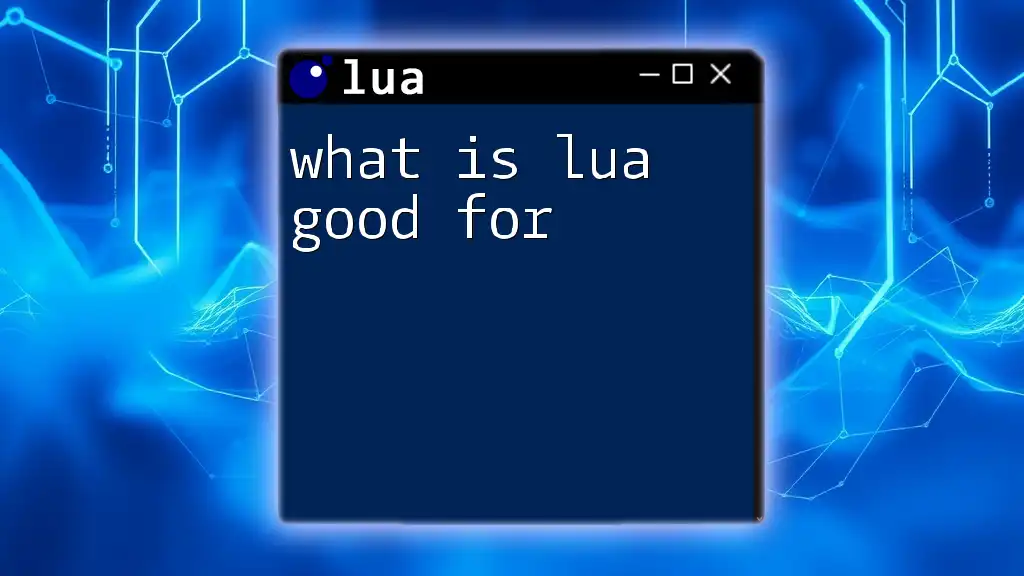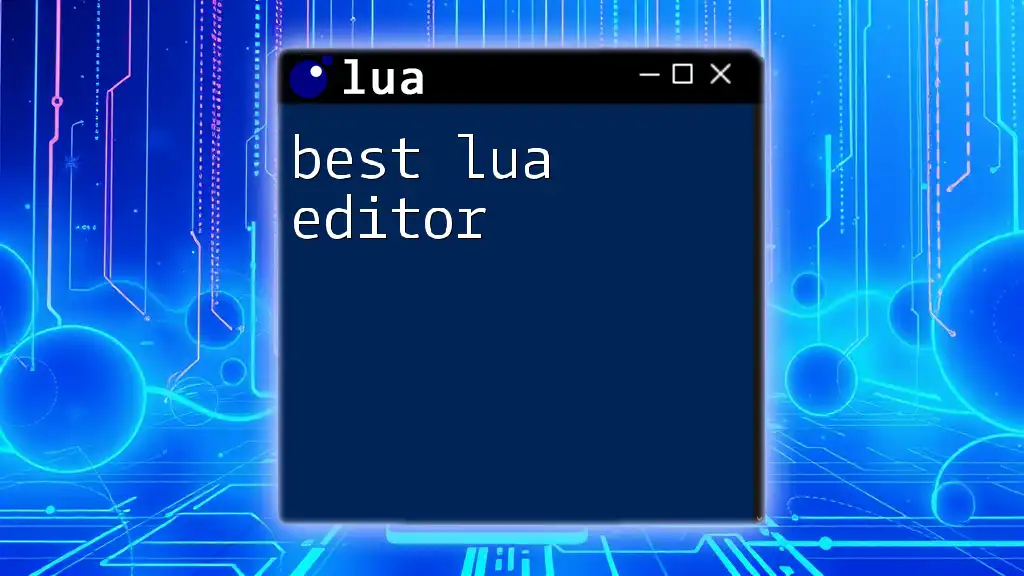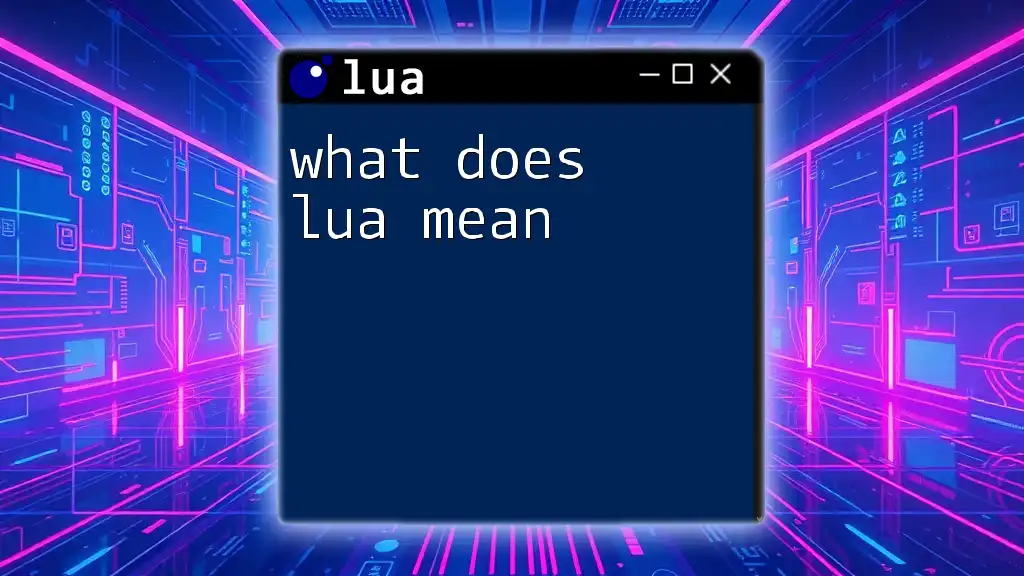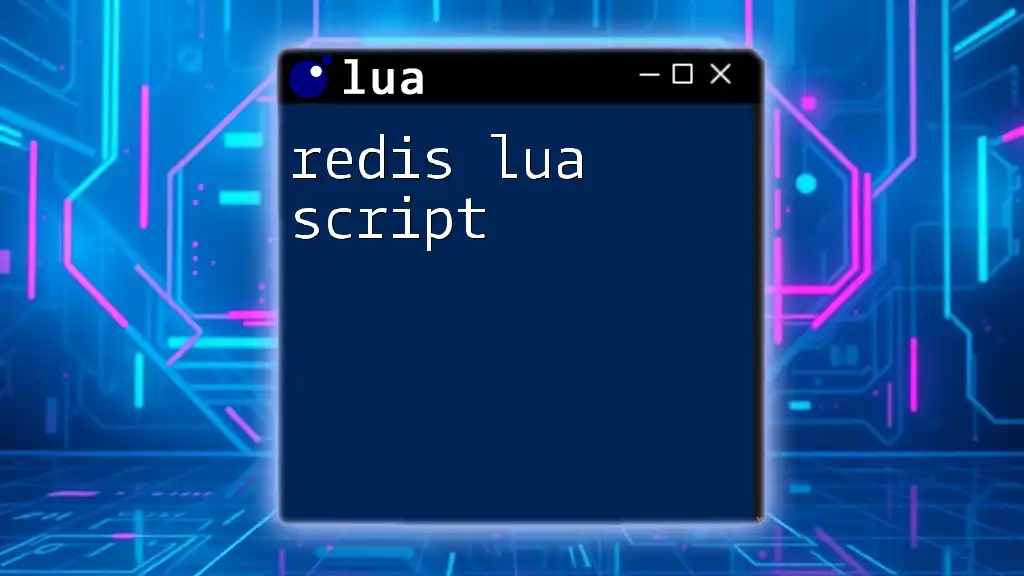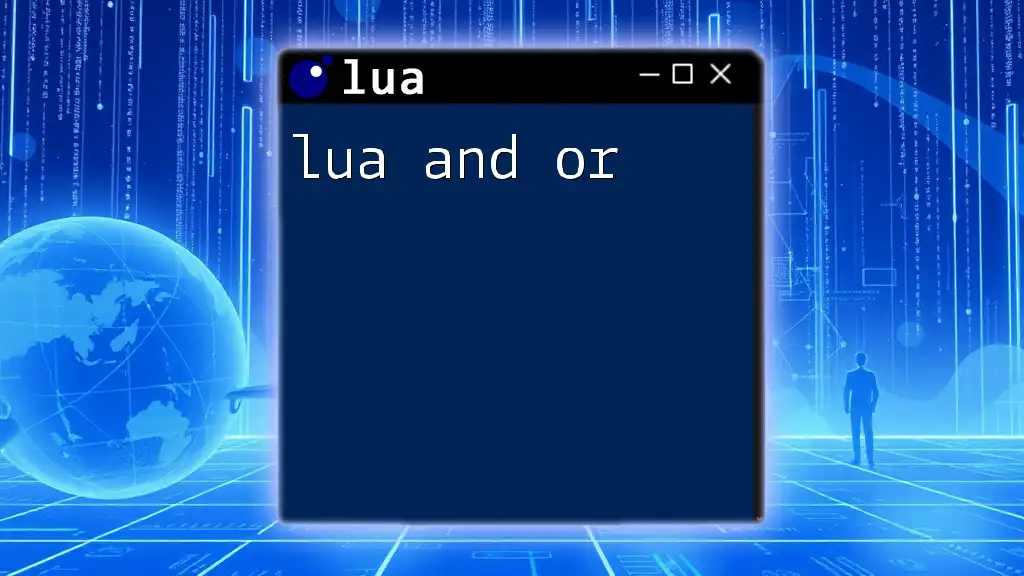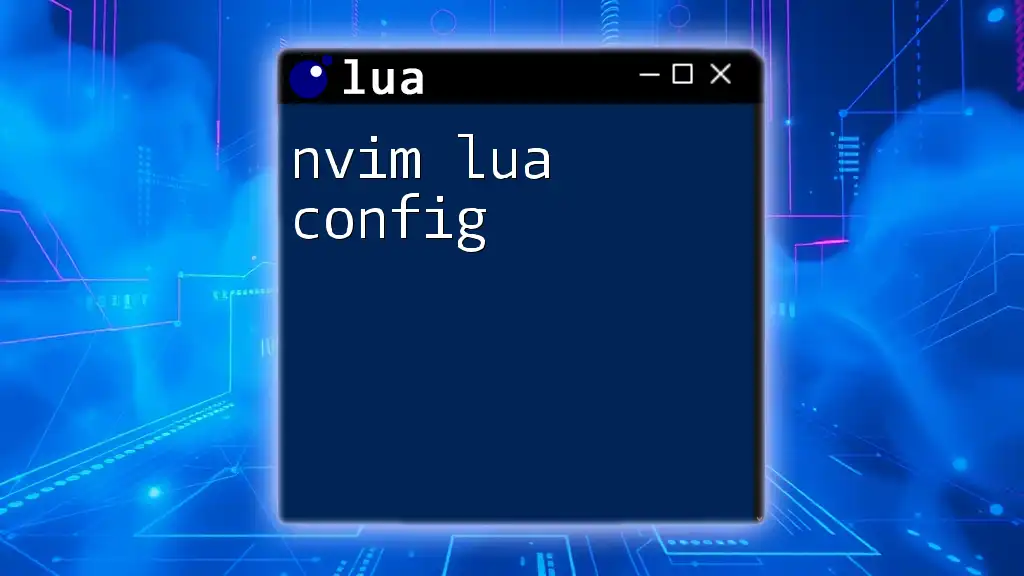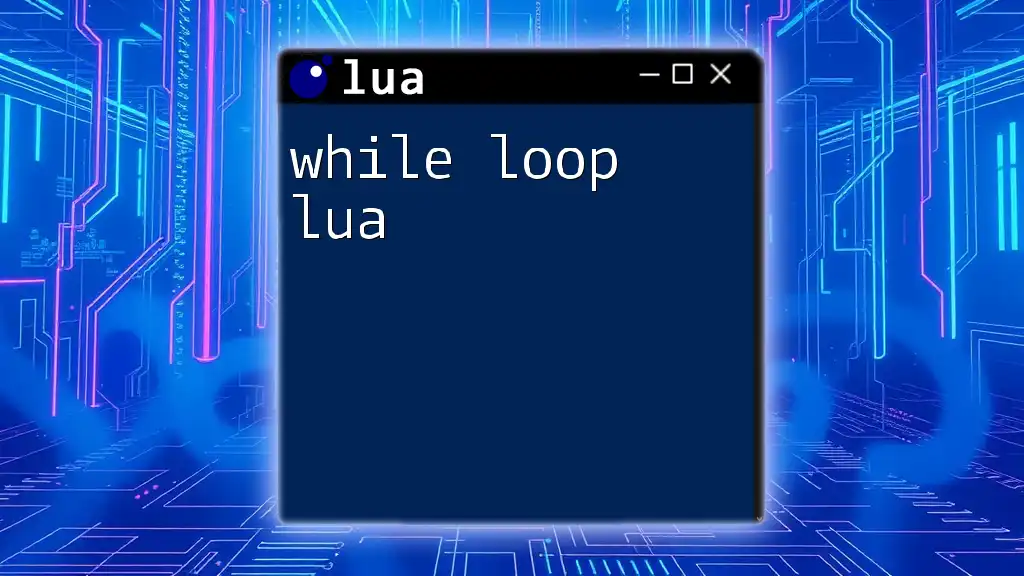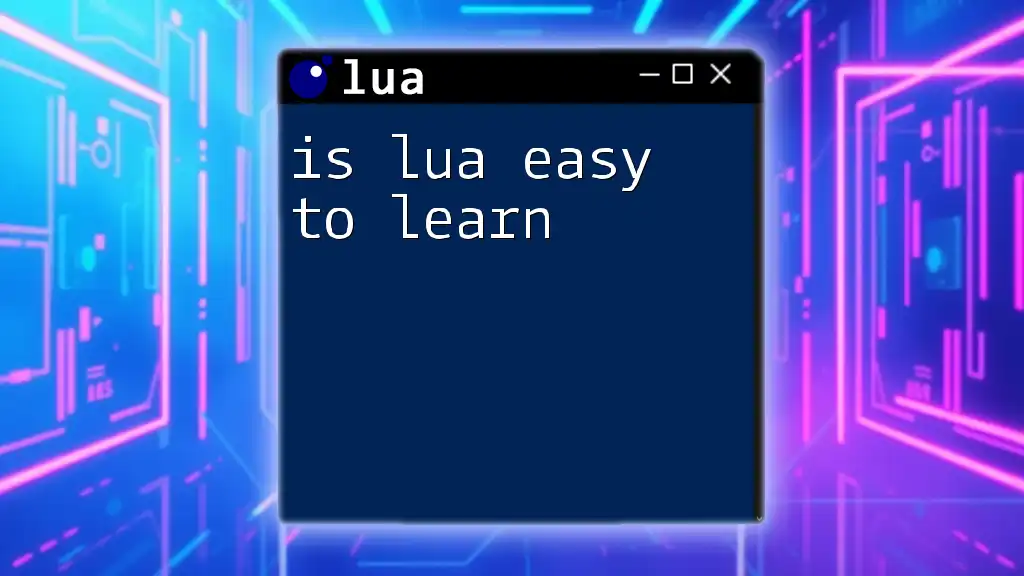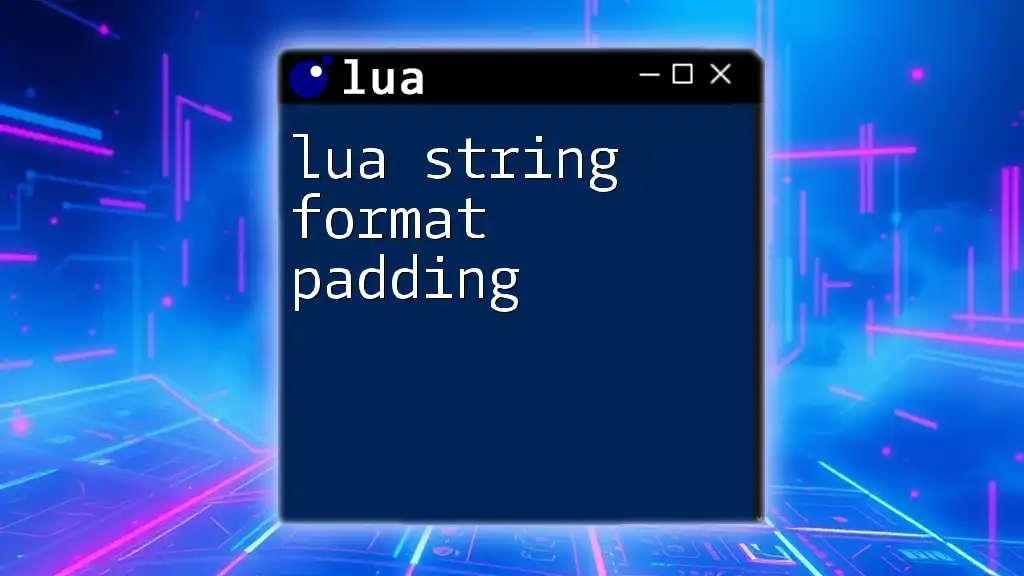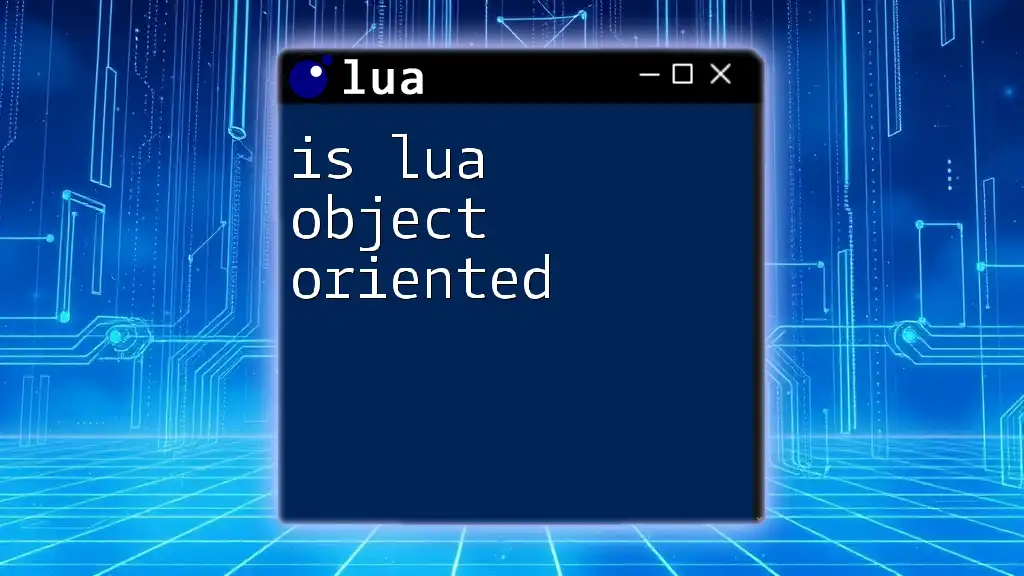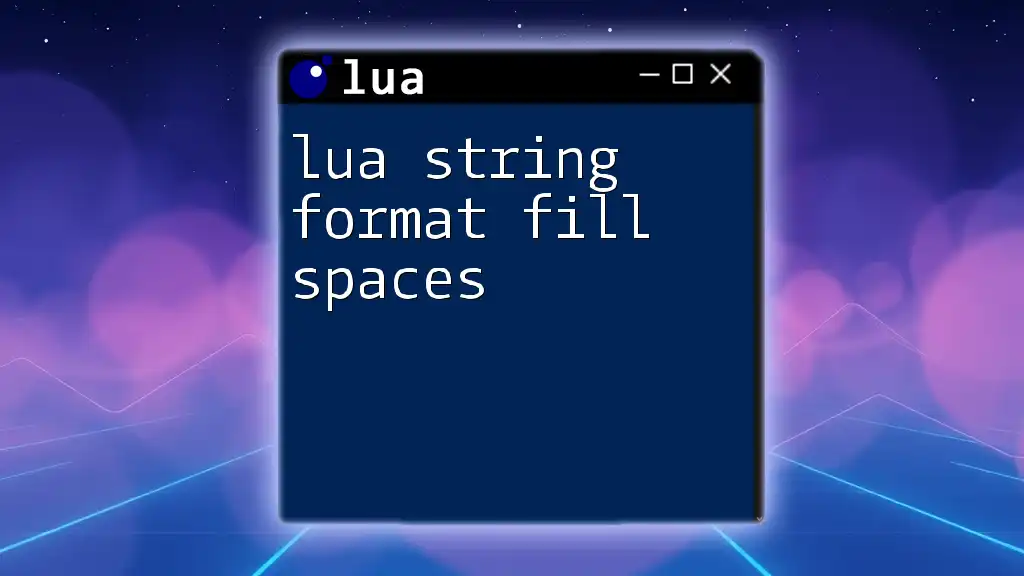Lua is a lightweight, fast, and flexible scripting language ideal for embedding in applications, game development, and rapid prototyping due to its simple syntax and high performance.
-- Simple Lua script to print "Hello, World!"
print("Hello, World!")
What is Lua?
Definition
Lua is a lightweight and high-level scripting language designed to provide a versatile and efficient programming experience. With its clean and straightforward syntax, it is accessible to both beginners and seasoned developers. One of its key characteristics is performance; Lua offers fast execution times which make it especially favorable for applications requiring high speed and efficiency.
History of Lua
Originally developed in the early 1990s in Brazil, Lua emerged from the need for a flexible and efficient scripting language for data description in applications. Over the years, it has seen key milestones in its evolution, including various updates that have enhanced its capabilities and performance.

The Strengths of Lua
Simplicity and Efficiency
Lua is known for its easy-to-learn syntax that resembles other programming languages like Python and JavaScript, making it ideal for rapid prototyping. It offers a minimalistic environment where developers can quickly write and test scripts without unnecessary complexity. Moreover, its fast execution time ensures applications run smoothly, which is vital, especially in performance-critical environments like gaming or embedded systems.
Flexibility and Extensibility
One of the standout features of Lua is its ability to be easily embedded into other applications. Developers can integrate Lua as a powerful scripting engine within larger programs written in C or C++. For instance, major game engines leverage Lua to allow developers to customize game logic without compromising performance.
Multi-Paradigm Support
Lua supports multiple programming paradigms, such as procedural, object-oriented, and functional programming, making it a versatile tool for various coding styles. This means developers can choose the approach that best suits their project requirements.
Here’s a simple Lua snippet demonstrating its support for procedural programming:
function greet(name)
print("Hello, " .. name)
end
greet("World")
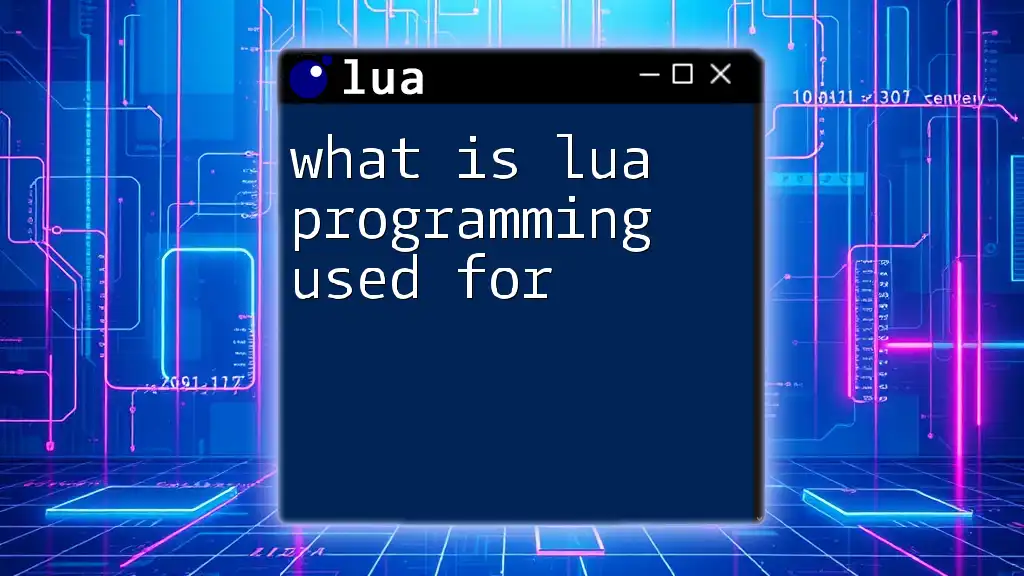
Use Cases for Lua
Game Development
Lua shines in the realm of game development, where it is frequently used to script game mechanics and AI. Its lightweight nature and speed make it an excellent choice for gaming engines like Love2D and Corona SDK.
For example, a simple function to update a player's position in a game could look like this:
function updatePlayerPosition(player)
player.x = player.x + player.speed
player.y = player.y + player.gravity
end
Embedded Systems
Another prominent use for Lua is in embedded systems and IoT applications. With platforms like NodeMCU for ESP8266 and ESP32, Lua provides a straightforward way to control hardware with minimal resource consumption.
Here's an example where Lua is used to control a GPIO pin on an ESP device:
gpio.mode(1, gpio.OUTPUT)
gpio.write(1, gpio.HIGH)
Web Development
Lua is also making waves in web development, thanks to frameworks such as Lapis and Sailor. These frameworks allow developers to build robust web applications using Lua, capitalizing on its speed and ease of use.
A basic example of setting up a simple web server in Lua is:
local lapis = require("lapis")
local app = lapis.Application()
app:get("/", function(self)
return "Hello, world!"
end)
return app
Data Processing and Scripting
In the realm of data processing, Lua is useful for quick scripting tasks and manipulation of data sets. Its lightweight nature enables developers to perform data tasks efficiently without the overhead associated with more extensive programming environments.
Here’s a simple Lua script that computes the sum of numeric values in an array:
data = {1, 2, 3, 4}
sum = 0
for i, v in ipairs(data) do
sum = sum + v
end
print("Sum: " .. sum)
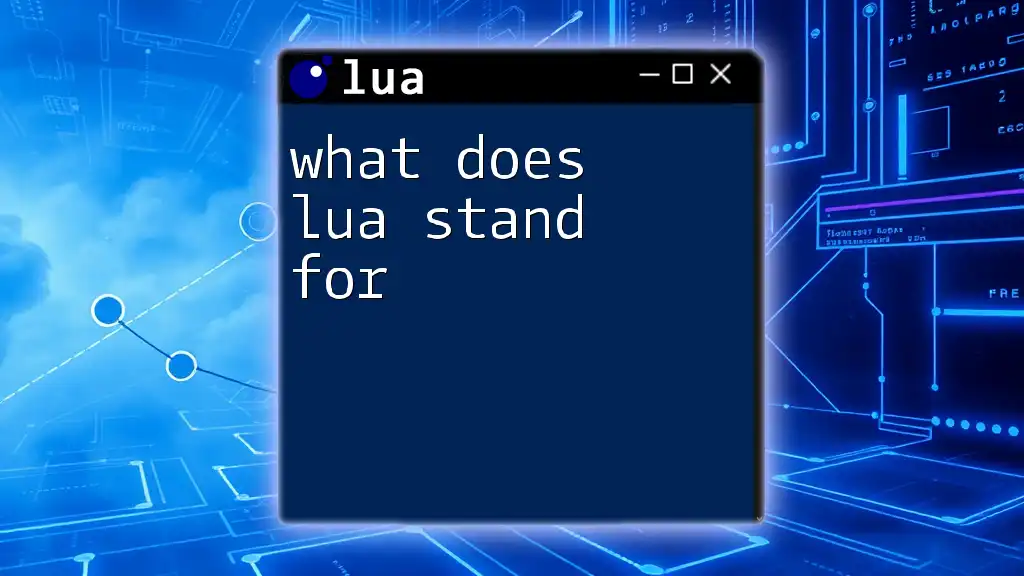
Lua in Popular Technologies
AI and Machine Learning
Lua has found its niche in AI and machine learning, where it is utilized in frameworks like Torch. This framework is particularly famous for its ease of use in constructing deep learning models. Lua's dynamic nature allows developers to prototype models quickly, making it suitable for research and production.
Image Processing
In image processing, Lua can interact with libraries like ImageMagick, allowing for powerful image manipulation capabilities. This flexibility opens the door to projects requiring custom visual processing tasks that benefit from Lua's scripting features.
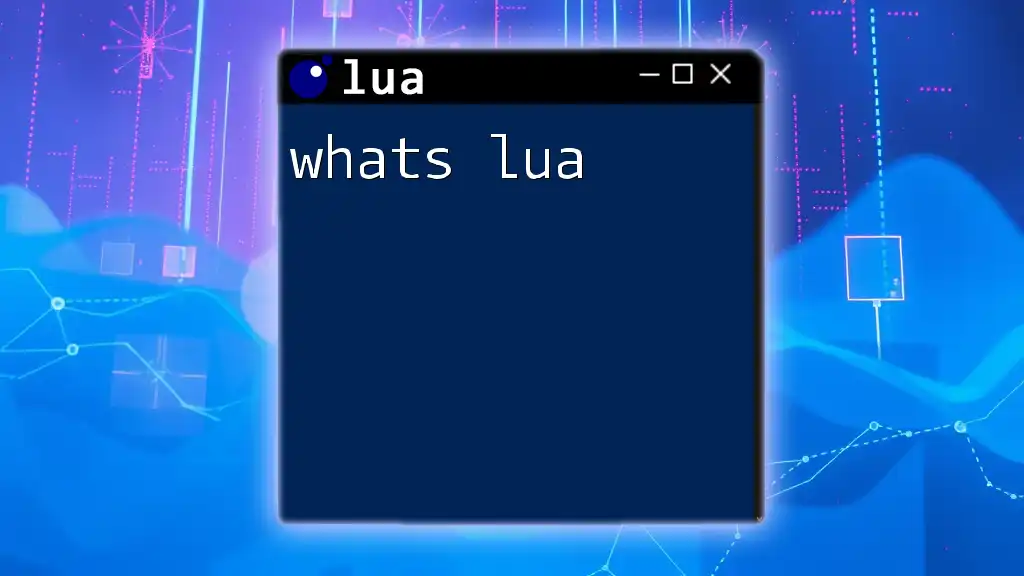
Benefits of Learning Lua
Career Opportunities
The demand for Lua programming skills is on the rise, especially in sectors like gaming, embedded systems, and web development. Mastering Lua can open many career opportunities, as companies increasingly seek professionals knowledgeable in this versatile language.
Community and Resources
Lua has a vibrant and supportive community, which is one of its strengths. Developers can find extensive resources, tutorials, and forums like LuaUsers and the official Lua documentation. This robust support system encourages enthusiasts to learn and share their experiences.
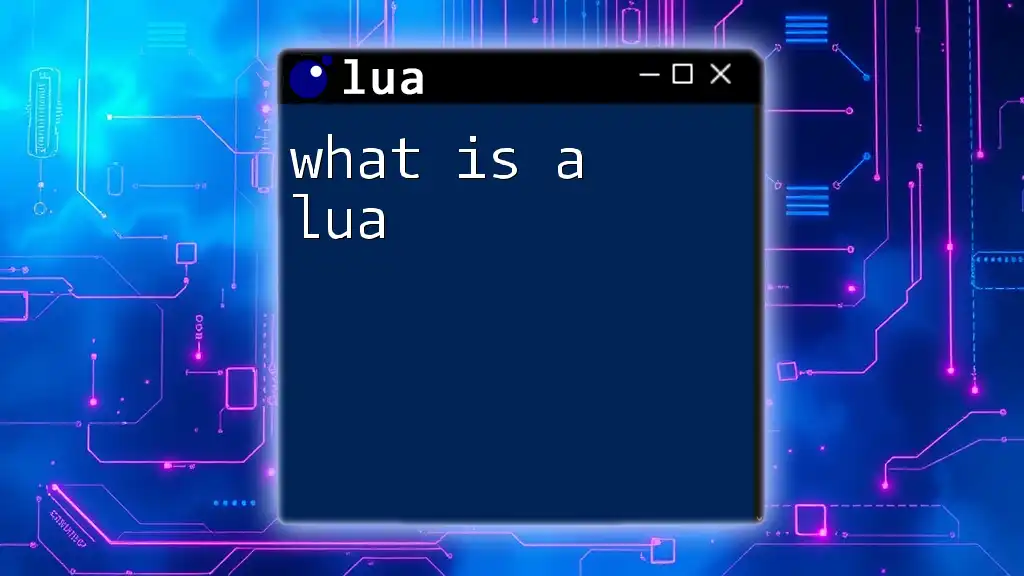
Conclusion
In summary, Lua is an incredibly versatile and efficient scripting language suited for a multitude of applications ranging from game development and embedded systems to web development and AI. Its simplicity and speed make it an ideal choice for both novices and experienced programmers eager to explore new frontiers in coding. Whether you aspire to build games, develop IoT solutions, or process data, learning what Lua is good for can unlock a world of possibilities in your programming journey.
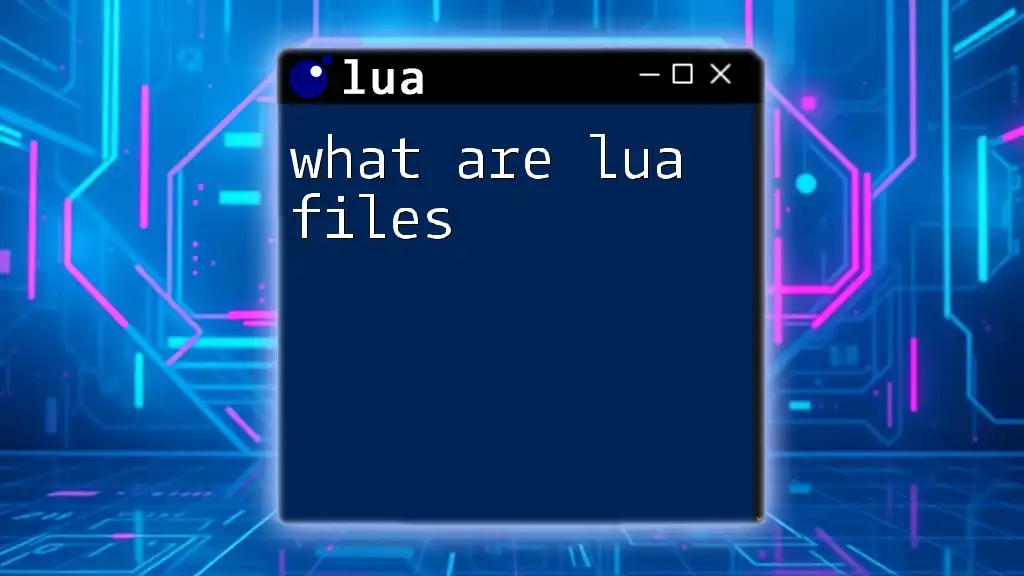
Call to Action
If you’re interested in delving deeper into Lua programming, consider exploring the courses and resources we offer. Whether you are a complete beginner or looking to sharpen your skills, our programs are designed to help you master Lua quickly and effectively. Join the community today and start your Lua journey!

